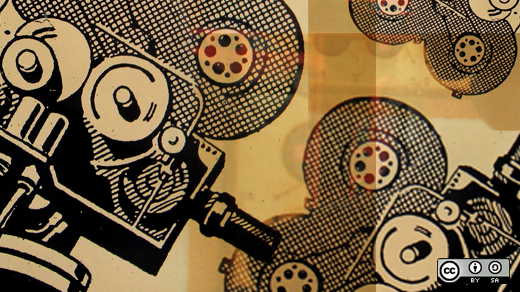You wouldn't think supporters of open source would be collectively discussing Disney's latest episode of "Shake It Up," but there's a first time for everything. Earlier this week, the children's TV show misrepresented the meaning of open source, reminding us that in film and TV script writers often generalize programs, platforms and ideas in technology to the point of skewing the definition of them completely.
In this episode of "Shake It Up", the classic geeky character gives tech advice to a less computer-savvy character:
Geek: "Did you use open source code to save time, and the virus was hidden in it?"
Less computer-savvy friend: "Maybe"
Geek: "Rookie mistake."
We posted about this mishap on both our Twitter and Facebook feeds, and our community provided us with some interesting feedback and insights.
On our Facebook page, Richard Ryder commented that TV entertainment writers consistently make errors in their script of this nature. Both Ryder and Juan Rodriguez provided examples of other TV show and movie scripts making similar mistakes.
Richard Clinker commented that, "The only example of credible use of tech in a film [that I can think of] is nmap in The Matrix." He adds that the writer of the Disney episode, "was just being ignorant."
"It does give entirely the wrong impression of what open source means in terms of security and reliability," said Clinker, "[It's] disappointing that Disney didn't pick up on this as they extensively use free [open source] software for animations, etc."
Across the web, bloggers and writers of other tech news sites have left commentary regarding the mishap.
On The Register, Simon Sharwood pointed out that, "In a company the size of Disney it is understandable that the left hand sometimes scarcely knows the other even exists. It therefore seems entirely likely the sitcom was written, filmed, and screened without anyone involved knowing that Disney-owned Pixar recently released some of its production code under an open source license."
What do you think this misrepresentation of open source says about Disney? Is it simply a mistake due to too many moving parts in the industry, or should entertainment companies require their writers to pay more attention to the details? Do you know other film or TV tech blunders?
Tell us what you think in the comments below.




19 Comments